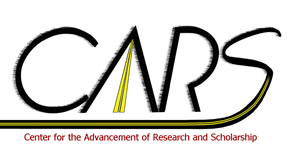Poster: The Problem of the Solution: Reformism, Mass Incarceration, and Ideology
Location
Moakley Atrium
Start Time
10-5-2017 4:00 PM
End Time
10-5-2017 5:00 PM
Description
This is a poster based on the work completed for my 2016 Summer Grant. In response to the catastrophic effects of mass incarceration, a recent bi-partisan rhetoric of reform has emerged across the nation. Much of this rhetoric identifies mass incarceration as an imperfect solution to the problem of crime and criminals. However, at the level of policy-makers, there is almost no critique of the construction of crime as problem and criminal justice as solution. By tracing the ideological processes embedded in this framing, it can be seen that structuring mass incarceration as a flawed solution to a real problem delimits both the magnitude and quality of possible responses. Further, this rhetoric renders invisible the roles played by white supremacy, patriarchy, and capitalism. These conclusions contribute to a concrete critique of current political forms, suggesting that more radical approaches, like abolitionism—despite their seeming challenge for implementation—may be more materially productive in confronting mass incarceration.
Poster: The Problem of the Solution: Reformism, Mass Incarceration, and Ideology
Moakley Atrium
This is a poster based on the work completed for my 2016 Summer Grant. In response to the catastrophic effects of mass incarceration, a recent bi-partisan rhetoric of reform has emerged across the nation. Much of this rhetoric identifies mass incarceration as an imperfect solution to the problem of crime and criminals. However, at the level of policy-makers, there is almost no critique of the construction of crime as problem and criminal justice as solution. By tracing the ideological processes embedded in this framing, it can be seen that structuring mass incarceration as a flawed solution to a real problem delimits both the magnitude and quality of possible responses. Further, this rhetoric renders invisible the roles played by white supremacy, patriarchy, and capitalism. These conclusions contribute to a concrete critique of current political forms, suggesting that more radical approaches, like abolitionism—despite their seeming challenge for implementation—may be more materially productive in confronting mass incarceration.
